
Marie Ballarini
Professeur assistant, Université Paris Dauphine – PSL
Marie Ballarini est Enseignante-Chercheuse au sein de l'Université Paris Dauphine – PSL, où elle est membre du laboratoire Dauphine Recherche en Management (DRM-MOST). Ses travaux se concentrent sur le financement et la communication des organisations culturelles, notamment à travers les nouvelles technologies et les réseaux numériques. Depuis 2022, elle occupe plusieurs responsabilités, dont la gestion des événements scientifiques pour l'association Mêtis, la communication pour l'Association for Cultural Economics International (ACEI) et la communication interne de l'Association Française de Marketing (AFM). Elle a mené des recherches post-doctorales à la Bibliothèque nationale de France dans le cadre du Labex ICCA relatives à l'impact des créateurs de contenu culturels sur les institutions et les publics du patrimoine. Sa thèse, soutenue en 2019 à l'Université Sorbonne Nouvelle, portait sur le financement participatif des musées et du patrimoine. Marie Ballarini est l'auteure de plusieurs publications académiques et professionnelles, explorant des thématiques telles que la médiation patrimoniale et la standardisation technique des œuvres en réalité virtuelle.
Less ![]()
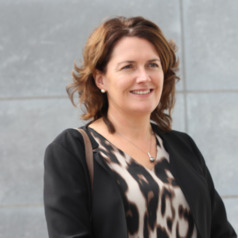
Marie Coggins
Senior lecturer in Exposure Science, University of Galway
I graduated from NUI Galway in 2000 with a PhD in Atmospheric Physics. From 2000 – 2003 I have worked in industry as an Industrial Hygiene Professional. Since 2003, I have worked as a Lecturer in Exposure Science, Occupational Hygiene and Chemical Safety and Risk Management. In 2015, I was awarded Chartered membership (CMFOH) of the Faculty of the Occupational Hygiene (British Occupational Hygiene Society). I was the programme Director for the multidisciplinary MSc / HDip Occupational and Environmental Health & Safety programmes from 2009 – 2019. I am currently programme Director for the BSc Environmental Health and Safety programme. I also lead the Exposure Science research group and have published over 70 peer-reviewed journals, reports and conference contributions in the field of Exposure Science (Occupational & Environmental Exposure). In January 2021, I was invited to serve on a National Expert Group on the Role of Ventilation in Reducing Transmission of COVID-19. Initially established as a subgroup of the National Public Health Emergency Team (NPHET), this group now works with the Senior Official’s Group to further inform sectoral guidance and public information regarding ventilation
Less ![]()
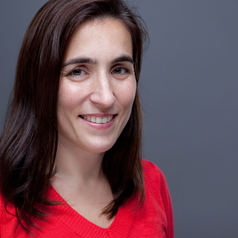
Marie Connolly
Professor of Economics, Université du Québec à Montréal (UQAM)
Marie Connolly (Ph.D. 2007, Princeton University) has been a professor at the Department of Economics of UQAM’s School of Management (ESG UQAM) since 2009. Her research is primarily empirical and touches upon various topics in labor economics, such as intergenerational income transmission and socioeconomic mobility, the formation of human capital, the gender wage gap, women’s labor force participation and the evaluation of public policy. Her work as been published in the Journal of Labor Economics, the Journal of Economic Behavior and Organization and the Canadian Journal of Economics, among others. She is currently Data Editor for the Canadian Journal of Economics and the Vice-Dean for Research at ESG UQAM.
Less ![]()

Marie Durrieu
Doctorante associée à l'Institut de Recherche Stratégique de l'École Militaire en science politique et relations internationales (CMH EA 4232-UCA), Sciences Po
Livre : "Du conflit israélo-palestinien au nucléaire iranien : l'humiliation la variable oubliée des négociations", L'Harmattan, 2021
Diplômée de l’École Doctorale de Sciences Po Paris.
Doctorante associée à l'Institut de Recherche Stratégique de l'École Militaire
Directeurs de thèse : Frédéric Charillon, Thomas Lindemann
Enseignante Science Politique et Relations Internationales à Sciences Po Paris et à Université de Clermont
Sujets d’étude : les émotions en politique, la guerre et les mutations de la conflictualité, Moyen et Proche Orient, analyse politique étrangère
Less ![]()
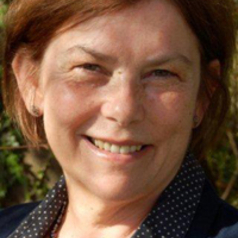
Marie Gillespie
Professor of Sociology, The Open University
Marie is co-director of Centre for Research on Socio-Cultural Change. She researches diaspora and national media cultures comparatively, historically and ethnographically. Her interests cluster around South Asian and Middle Eastern diasporas, cultural transnationalism, and changing configurations of audiences and publics in relation to question of citizenship. Recent collaborative include: a large-scale study of the BBC World Service as a multi-diasporic institution; an exploration of the new politics of security via a collaborative ethnography of transnational news cultures in multi-ethnic British households in eight UK cities; a national survey with the BBC on the changing face of British humour, ethnic jokes and comedy. Marie was awarded an AHRC Public Policy Fellowship in 2011 to develop research on the interface between international broadcasting and social media, specifically in relation to the BBC Arabic Services.
Less ![]()

Marie Hornberger
Research Associate at the School of Social Sciences and Technology, Technical University of Munich
Less ![]()
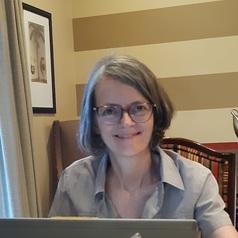
Marie Huchzermeyer
Professor, School of Architecture and Planning, University of the Witwatersrand
Prof Marie Huchzermeyer is a professor in the School of Architecture & Planning at Wits University and the current Director of the Centre for Urbanism and Built Environment Studies (CUBES) in the School. Her research has spanned Brazil, South Africa, Kenya and other African countries. She has explored questions of policy and rights as they relate to informal settlements, private rental housing or tenements and housing more widely. Her current research is on the right to the city and the right to development and their implications for policy, planning and institutional arrangements in a context of inequality and the prevalence of what has come to be known as informality.
Less ![]()
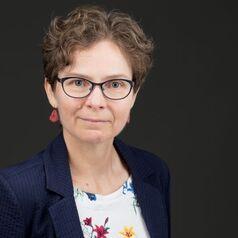
Marie Larocque
Professeure au département des sciences de la Terre et de l'atmosphère, Université du Québec à Montréal (UQAM)
- Centres de recherche Geotop et GRIL
- Chaire de recherche Eau et conservation du territoire (chaire-eau.uqam.ca)
Less ![]()
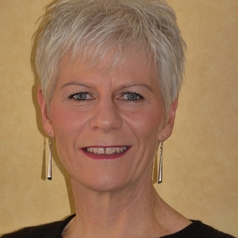
Marie McEntee
Senior Lecturer, School of Environment, University of Auckland, Waipapa Taumata Rau
Marie McEntee is a social scientist in the School of Environment at the University of Auckland with research interests in science / society interactions particularly relating to complex socio-environmental issues. She engages in transdisciplinary research focusing on public engagement in science, science communication, and science innovation. She has a particular interest in biosecurity and in particular forest biosecurity and invasive predator management.
Less ![]()


Marie T. Reilly
Professor of Law, Penn State
Marie T. Reilly is a professor at Penn State Law and an expert in bankruptcy and commercial law. She served as Associate Dean for Academic Affairs from 2008 to 2015. Prior to joining the Penn State faculty, she was a professor at the University of South Carolina School of Law. Before she became a law teacher, she practiced law with Williams & Connolly in Washington, D.C., and Schiff Hardin in Chicago, Illinois. She teaches contracts, bankruptcy, and commercial law subjects and co-teaches a bootcamp-style course on business fundamentals for law students. Her scholarship considers legal responses to insolvency problems in light of economic, political, and social influences over time. She is a co-author of a law school casebook on secured transactions. Her articles address a wide variety of issues including Catholic organization bankruptcies, fraudulent transfer law, successor liability, marital agency, and tax lien foreclosures. Professor Reilly holds a B.A. (economics) and J.D. from the University of Illinois. She is an elected member of the American Law Institute and a member of the bars of Illinois, District of Columbia, and South Carolina.
Less ![]()
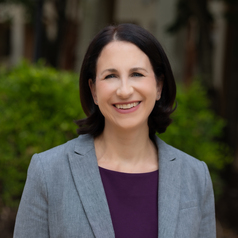
Marie-Amelie George
Associate Professor of Law, Wake Forest University
I am an expert on gay and lesbian legal history and contemporary LGBTQ+ rights. My research has appeared in leading peer-reviewed and law review journals, and I am a three-time recipient of the Dukeminier Award, which recognizes the country's most influential sexual orientation and gender identity scholarship.
I currently teach at Wake Forest University School of Law. Prior to joining the Wake faculty, I was the Berger-Howe Fellow in Legal History at Harvard Law School. I also served as an Associate in Law at Columbia Law School, where I taught the Sexuality and Gender Law Clinic. I received my Ph.D in history from Yale University, and my J.D. from Columbia Law School, where I was Editor-in-Chief of the Columbia Journal of Gender and Law and a Kent Scholar. I also hold a M.St. in Women's Studies from the University of Oxford, where I was awarded a distinction on my thesis.
Less ![]()
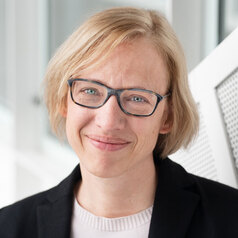
Marie-Ann Betschinger
Associate Professor of Strategy, HEC Montréal
Marie‑Ann Betschinger is Associate Professor of Strategy at HEC Montreal in Canada. Her research focuses on corporate and international strategy. She is particularly interested in different forms of firm internationalization, mergers & acquisitions, corporate governance, and the political and social context within which firms act.
Less ![]()
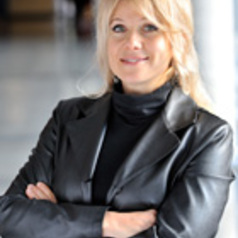
Marie-Christine Doran
Full Professor of Compared Politics, L’Université d’Ottawa/University of Ottawa
(French follows)
Marie-Christine Doran is a Full Professor of comparative politics at the School of Political Studies, University of Ottawa, specializing in democratization, human rights, and violence in Latin America. She is also a consultant on Latin American issues for the Ministry of Foreign Affairs of Canada (Global Affairs Canada) since 2015. She holds a Social Sciences and Humanities Research Council of Canada-SSHRCC grant on “Violence and Democracy: the Criminalization of Struggles for rights in Latin America (2018-2025), for which she is main researcher of a team of 7 specialists and Director of the Observatory on Violence, Criminalization and Democracy. Since the beginning of her career, Marie-Christine Doran has obtained research grants totalizing over 1 700 000 $ CAN for projects focused on the persistence of violence in democratic context in Latin America, the nature of political regimes, the weight of authoritarian political and legal legacies, the impact of social movements for rights, justice and memory, and the impact of violence by state and non-state actors on women, LGBTQ+ communities, indigenous and Afro-descendant defenders, in order to find solutions that reinforce democracy. She is a researcher at the International Panel on Exiting Violence (IPEV), and other international research platforms in Europe and Latin America, including the Brazilian CAPES International Research Network on Conflict Management in Plural Public Spaces Her published work include numerous peer-reviewed articles in four languages, some of which can be found at Academia and Researchgate, as well as two books, Le réveil démocratique du Chili. Une histoire politique de l’exigence de justice, (foreword by Alain Touraine,: Karthala 2016); as well as Human Rights as Battlefields. Changing Practices and Contestations (Palgrave Macmillan, 2019) and a third forthcoming book, Criminalizing Democracy:the Hidden Face of Violence in Latin America, to be published at Routledge in 2024. She is regularly invited to comment on Latin American politics and violence in Canadian and international media.
French
Marie-Christine Doran, PhD
Marie-Christine Doran est professeure titulaire de politique comparée à l’École d’études politiques de l’université d’Ottawa, spécialiste de la démocratisation, des droits humains et de la violence en Amérique latine. Elle est aussi consultante pour le Ministère des Affaires Mondiales Canada depuis 2015.Elle est chercheure principale d’une subvention du Conseil de recherches en Sciences humaines du Canada-CRSH pour le projet « Violence et démocratie : la criminalisation de la lutte pour les droits en Amérique latine » pour lequel elle dirige une équipe de 7 chercheur.e.s, ainsi que l’Observatoire violence, criminalisation et démocratie-OVCD. Depuis les débuts de sa carrière, elle a obtenu près de 1 700 000 $ (CAN).en subventions de recherche, au Canada et à l’international, pour des recherches portant notamment sur la persistance de la violence en contexte démocratique latino-américain, la nature des régimes politiques, le poids des héritages politiques et juridiques autoritaires, l'impact des mouvements sociaux pour les droits, la justice et la mémoire, ainsi que l'impact de la violence exercée par les acteurs étatiques et non étatiques sur les femmes, communautés LGBTQ+, les défenseurs autochtones et afro-descendants, afin de trouver des solutions qui renforcent la démocratie. Elle est chercheure dans plusieurs équipes internationales en Europe et Amérique latine dont l’International Panel on Exiting Violence (IPEV) et l’équipe brésilienne CAPES International Research Network on Conflict Management in Plural Public Spaces. Elle a été Fellow à l’université Harvard University, et professeure invitée, notamment à École des Hautes études en Sciences Sociales (Paris). Ses publications en 4 langues incluent de nombreux articles dont plusieurs sont disponibles sur Academia et Researchgate. mais aussi 2 ouvrages : Le réveil démocratique du Chili. Une histoire politique de l’exigence de justice, (foreword by Alain Touraine,: Karthala 2016); as well as Human Rights as Battlefields. Changing Practices and Contestations (Palgrave Macmillan, 2019), un 3ème ouvrage, Criminalizing Democracy:the Hidden Face of Violence in Latin America, paraîtra chez Routledge en 2024.Elle est régulièrement invitee à commenter l’actualité latino-américaine dans les médias canadiens et internationaux.
Less ![]()
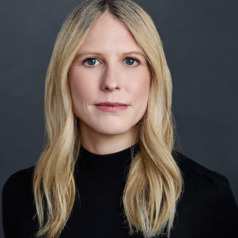
Marie-Eve Loiselle
Lecturer in Law, Macquarie University
Marie-Eve Loiselle is a Lecturer at Macquarie University in International Law and Legal Theory. Prior to joining Macquarie University, Marie-Eve was a Canadian Social Science and Humanities Research Council (SSHRC) Postdoctoral Fellow at the Munk School of Global Affairs and Public Policy (University of Toronto). She also held a research fellowship from the Max Planck Institute, Department of Ethics, Law and Politics. She was an Australian Research Council (ARC) Research Fellow at the Faculty of Law of the University of New South Wales, where she worked on the project, "Leveraging Power and Influence on the UN Security Council". She was also a research officer on the ARC linkage project "Strengthening the Rule of Law through the UN Security Council" (Australian National University). She received a PhD in Law and Governance from the Australian National University.
Less ![]()

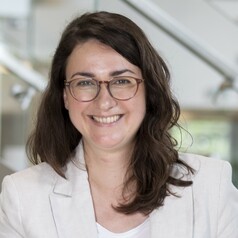
Marie-Rachel Jacob
Professeur-chercheur en management, EM Lyon Business School
Ancrée dans une observation-participante de plusieurs années au sein du siège d'un grand groupe, ma thèse a porté sur la collaboration entre salariés et travailleurs extérieurs. Je travaille depuis sur la manière dont les entreprises et les personnes vivent les transformations du travail et de l'emploi. En particulier, je m'intéresse aux questions du management des collectifs de travail, du dialogue social et des pratiques de GRH, des parcours des travailleurs et de la soutenabilité de nos modes de travail. Je mène mes recherches dans le cadre du centre o.c.e d'emlyon business school.
Less ![]()
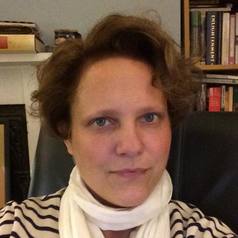
Marieke Riethof
Marieke Riethof has a PhD in Political Science and International Relations from the University of Amsterdam and is a lecturer in Latin American Politics at the University of Liverpool.
Her past research and publications focused on political strategies of the labour movement in Brazil, including the Latin American regional context. She is currently finishing a book on the trajectory and political strategies of the Brazilian labour movement. Her new research projects focus on Brazilian foreign policy in the context of international relations in Latin America. The project examines traditional as well as non-traditional areas of foreign policy, including environmental politics and human rights. In May 2011, she was an expert witness at the House of Commons Foreign Affairs Committee on UK-Brazil relations and Brazil's emerging global role. A second project deals with the role of transnational solidarity movements and exile in the opposition to military dictatorship in Chile with an initial focus on the UK.
Less ![]()
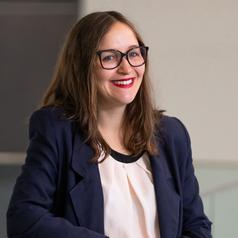
Marielle Papin
Assistant Professor in Political Science, MacEwan University
Over the last few years, I have worked on urban climate governance from local and global perspectives. More specifically I have studied the networks cities join or create to enhance their climate policies and their potential for generating innovative climate instruments. I am now starting a new research agenda on the governance of urban wellness and its synergies and conflicts with urban climate policy.
Less ![]()

Mariia Sozoniuk
Graduate Researcher, Explanatory Journalism Project, Toronto Metropolitan University
Mariia Sozoniuk is a Master of Professional Communication (TMU). She conducted studies on Sustainability, User Experience and Consumer Behaviour at the Sustainable Packaging Research Lab at TMU, employing Online Surveys and PLS-SEM analysis. She also worked with the Explanatory Journalism (XJO) team at TMU on the annual survey of The Conversation Canada readers to deliver practical implications through the Theory of Planned Behaviour study. Mariia continues to work with the XJO team, surveying news consumers from Canada, the UK and Australia to inspect their perception of using Artificial Intelligence (AI) in news creation.
Less ![]()

Marija Jovanovic
Senior Lecturer (Associate Professor), University of Essex
Marija Jovanović is a Senior Lecturer (Associate Professor) at the Essex Law School and Human Rights Centre. Her research focuses on modern slavery and the way this phenomenon interacts with different legal regimes, such as human rights law, criminal law, labour law, immigration law, international trade law, and business regulation. She is the author of State Responsibility for ‘Modern Slavery’ in Human Rights Law (Oxford University Press, 2023). Marija holds DPhil, MPhil, and Magister Juris degrees from the University of Oxford, and a law degree from Serbia. She previously held a Postdoctoral Fellowship in ASEAN Law and Policy at the National University of Singapore, and worked as a Lecturer at the University of Kragujevac and University of Belgrade. Dr Jovanović is currently leading a research project funded by the Arts and Humanities Research Council and the Modern Slavery and Human Rights Policy and Evidence Centre, which investigates the experiences of modern slavery survivors in the UK prisons.
Less ![]()

Marijn Hoijtink
Associate Professor in International Relations, University of Antwerp
I am Associate Professor in International Relations at the Department of Political Science at the University of Antwerp. Previously I was Assistant Professor at Vrije Universiteit (VU) Amsterdam. My research and teaching focuses on military technology, militarism and the changing character of warfare. In my current research project, funded by the Dutch Research Council (NWO), I examine military applications of artificial intelligence (AI), with a particular interest in how these technologies shape the way in which warfare is thought, fought and lived.
Less ![]()

Marika Avenel Brown
PhD Candidate & Teaching Fellow, McMaster University
Marika Avenel Brown is currently an ABD PhD Candidate and Teaching Fellow in the Department of English and Cultural Studies at McMaster University. She also has an undergraduate specialization in Interdisciplinary Studies in Sexuality and a graduate specialization in Digital Humanities.
Her dissertation work looks to speculative fiction to trouble the division between natural and unnatural and to posit better future entanglements between human, nonhuman, and more-than-human life and she has written about critical veganism as a mode of speculative possibility.
Less ![]()
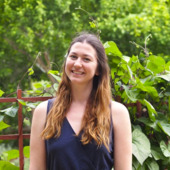
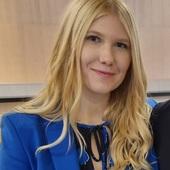
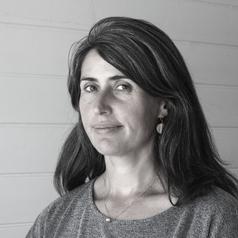
Marika Sosnowski
Postdoctoral research fellow, The University of Melbourne
Marika Sosnowski is an Australian lawyer, a Postdoctoral Research Fellow at the University of Melbourne Law School and a Research Associate with the German Institute for Global and Area Studies (GIGA) in Hamburg. Her primary research interests are in the fields of critical security studies (primarily ceasefires), local/rebel governance and legal systems (especially issues of citizenship and belonging). Her geographical area of specialisation is the Middle East, particularly Syria.
Less ![]()


Marilla L. Druitt
Affiliate Senior Lecturer, Faculty of Health, Deakin University
Dr Marilla Druitt is an obstetrician and gynaecologist who works in Geelong in the public and private systems and is a RANZCOG/AGES level 5-6 accredited surgeon.
She is interested in the mind-body connection in pelvic pain, part of an interdisciplinary persistent pelvic pain clinic at Geelong Hospital.
She is a RANZCOG councillor, helped write the national Endometriosis Guideline, does research with Australasian Interdisciplinary Researchers in Endometriosis (AIRE), and Deakin University. She is also part of a Bellarine wide clinician network caring for trans and gender diverse patients.
Current research includes the Happi study – CBT & yoga for pelvic pain, an e-hypnotherapy trial for pelvic pain, an endometriosis education course, a cannabis trial and a planned porphyria study for patients.
Marilla is the current president of Pelvic Pain Victoria, is involved in the Victorian state government redesign of gynae outpatient clinics in the public system, and is the gynaecologist on the Victorian's Women's Pain Inquiry.
Less ![]()
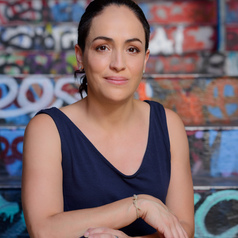

Marilynne N Kirshbaum
Professor and Chair of the Human Research Ethics Committee, Charles Darwin University
Professor Marilynne N Kirshbaum is Chair of the Human Research Ethics Committee and was previously Head and Professor of Nursing at CDU.
She remains strongly committed to promoting excellence in nursing research and teaching.
Throughout a long career, she has amassed 100 research articles, books, book chapters and international conference presentations, 15 PhD completions and has led doctoral programs for health care professionals.
Her area of clinical and research expertise is in cancer and palliative care, specifically in exploring how people who suffer from debilitating fatigue can summon up sources of vitality and energy.
Research interests:
-cancer-related fatigue
-chronic fatigue
-physical exercise in cancer care
-energy medicine/integrative health and wellbeing
-art, music and dance for wellbeing
-development of theory.
Less ![]()

Marina Boulos
Teaching Associate in Human Resource Management, University of Manchester
I am very passionate about creating healthier workplaces for employees, making a living should never kill anyone! However, I am a strong believer (informed by research!) in prevention when it comes to work-related stress hoping to encourage organisations to implement primary interventions for a win-win outcome.
My PhD entitled 'Understanding stress management intervention success: A case study-based analysis of what works and why' has only increased my interest for the subject of employee well-being and crystallised its importance even more.
Less ![]()

Marina Costa Lobo
Professor in political science , Fondation Maison des Sciences de l'Homme (FMSH)
Less ![]()

Marina Miron
Post-doctoral Researcher, King's College London
Dr. Marina Miron holds a post-doctoral research position at the War Studies Department, King's College London. Her research focuses on examining the information warfare strategies employed by Russia and China. Dr. Miron is actively involved in a research project funded by the British Academy in collaboration with Prof. David V. Gioe. This project explores effective countermeasures that the Western world can adopt in response to these strategies. Her research encompasses the theoretical aspects of information warfare and its practical implications, particularly in domains such as space, cyberspace, and the electromagnetic spectrum.
Less ![]()

Marina Yusupova
Lecturer in Sociology, Edinburgh Napier University
Lecturer in Sociology at Edinburgh Napier University, feminist and decolonial researcher.
Less ![]()
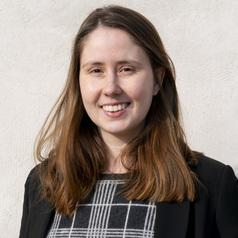
Marina Zucker-Marques
Senior Academic Researcher, Boston University Global Development Policy Center, Boston University
Less ![]()
- Market Data























